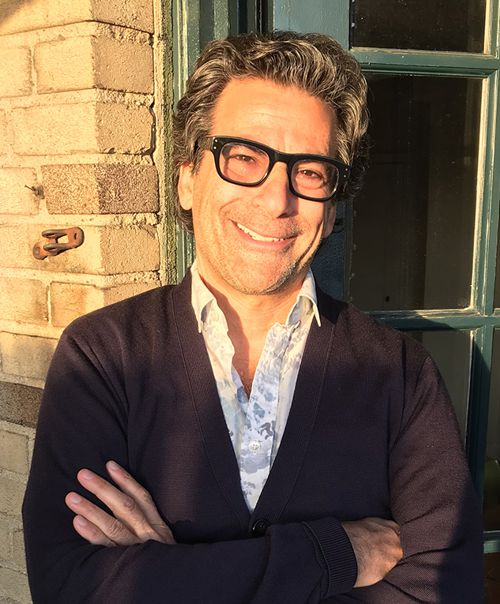Issue #94
What’s New in January 2023
Featured Article
Becoming “Never Years Old”
By Allan Ishac
I was in the company of a six-year-old recently who finished a fanciful story at a family dinner by stating, “That happened when I was never years old.”
It was such an offhand but beautiful comment about aging, and in spiritual terms, about the absence of time and death. I thought about this innocent remark for weeks afterward and concluded that a very noble goal for any life would be to always remain “never years old.”
How? How do we become ageless regardless of the number of years we’ve lived? We all know people in their 70s or 80s, even older, who seem to defy their age, going through their days with vigor, optimism, and resilient good cheer. We admire and even wish to emulate their energy and enthusiasm. In response, we might seek the latest age-defying diet, undertake a transformative wellness program, or follow some other external path to the fountain of youth.
But A Course in Miracles tells us that the body is not the source of true health, youthful energy, or enduring happiness, and no amount of body-focused training will work. It is the mind that must be retrained, not the body.
This is perhaps where children can be our greatest teachers.
I have always been intrigued by the Bible verse, “Truly I tell you, unless you change and become like little children, you will never enter the Kingdom of Heaven.” (Matthew 18:3)
What does that mean? The traditional, theological interpretation is that the Kingdom of Heaven can only be entered by recognizing that we are powerless, like children, over the circumstances of our lives, and must remain humble and dependent on God to manage our daily challenges.
But maybe there’s more to it than that. Maybe the verse has less to do with a childlike willingness to submit to an all-powerful force, and everything to do with a child’s curiosity and unencumbered imagination. To become like little children is to be in a natural state of constant curiosity, fully engaged in the present moment, noticing life’s smallest details and exploring every dimension of the everyday.
“There are no seven wonders in the world in the eyes of children; there are seven million,” wrote the educator Walt Streightiff. He points to wonder and awe as the hallmarks of childhood, and possibly the keys to keeping our adult hearts and minds open to help foster a supple agelessness.
What happens, then, to our wonder and curiosity as we get older? ACIM hints at the answer, suggesting that the trouble begins when we think we know how the world works and what it’s for, when in fact we don’t know what anything means at all (ACIM, Lesson 25). The adult mind (the ego mind) becomes hardened and uncompromising in its need to know and to be right. Children, on the other hand, know they know nothing and, therefore, remain wide-eyed and willing to be surprised by whatever comes next.
This notion is similar to the famous Zen proverb about emptying our cups. As we grow older, our cups become filled with our sternly held beliefs and fossilized opinions, our righteous judgments and stubborn knowings, and there is no room for anything new to enter. If we want to see through young eyes, we must humble ourselves and empty our minds of what Mooji, the contemporary mystic, calls our “learned ignorance.” Only then is there hope of seeing with fresh eyes and experiencing the world anew, as children do.
There is another quality in children that most adults have lost, what ACIM calls a “suspension of faithlessness”—also known as believing that anything is possible. Grown-ups might call this naïve, but there is a deep truth here that’s completely consistent with the Course: if the mind is all there is, and our world is nothing more than our thoughts crystallized and projected into perception, then Santa Claus, or a Jedi Knight, or Scooby-Doo are as real, or fake, as anything else in this made-up, illusory world. Everything we’re looking at is an animation created from the inner mind clay of our imaginations.
Once we accept this idea fully, then it is easy to make the leap to ACIM’s “there is no order of difficulty in miracles,” or the Biblical assurance that we can move mountains with faith as small as a mustard seed. Perhaps it is exactly this “suspension of faithlessness” that Jesus is speaking about when he asks us to become like little children—this is the consequential change that will allow us to enter a heavenly realm where there are no bodies that can age, wither, and die.
Here’s a final thought—another plucked from the Childhood Handbook of Agelessness. It is about playing.
In a recent New York Times article, the well-known, whimsical cartoonist Lynda Barry says that child’s play is not frivolous, but essential to preserving mental flexibility at any age and nurturing our creative side: “Adults think that kids playing is some nothing thing. But play is a different state of mind, and it can help us do so many things if we just allow ourselves to get back to it.”
One of the co-scribes of the Course apparently knew all about this. In Never Forget To Laugh, Carol Howe’s biography of Bill Thetford, she writes about his endearing playfulness, his love of punning, his laughter and his sense of wonder at the world. In the last days of his life, Bill is described as literally dancing across the floor, filled with a kind of childlike glee, so light that he was almost lifted off the ground.
It is worth noting that he had a practice to lighten his burden in his later years, one that we can all apply. When asked how he spent his time, Bill would reply, “I am practicing forgiveness.” ACIM tells us that nothing depletes our minds and spirits (i.e. ages us) like holding onto our grievances, guilt, judgments, anger, envy, worry, irritations and annoyances (think of how quickly children let these go). And nothing brings us back to the possibility of eternal peace and ageless joy like forgiveness. Bill was a wonderful demonstration of this liberating principle.
So, yes, our bodies might die, but we never have to grow old. We can retain an energetic spark, an agile mind, a playful disposition, and the ability to inhabit the Course’s “happy dream” throughout our lives by becoming as little children again.
Then we can answer truly when asked our age, “I am, and will always be, never years old.”
Allan Ishac is the author of the regional bestseller, New York’s 50 Best Places To Find Peace And Quiet. He has been studying ACIM since 1986 and just completed a metaphysical adventure novel titled The First Metanoian based on ACIM themes. You can learn more about this mystical tale of mind-bending possibilities and add your name to the pre-publication announcement list at allanishac.com.





Beautiful! And so very timely. thank you 🙏🏾
Metanoian to me is ACOL’s The Elevated Self of Form, the nondoing/alldoing HUman BEing, the presence of the pure energy of Love/Light in Form, the Bodhisattva, walking the planet one step at a time, loving unconditionally, blessing indiscriminately, and CoCreating the new earth! With love, Christina🌺